By Michael D. Hull
Racing his Bentley at breakneck speed between his High Wycombe headquarters and the Air Ministry during World War II, Air Marshal Arthur Travers Harris was the bane of motorcycle policemen on the London road.
Late one night, a constable stopped him and said reproachfully, “You might have killed somebody, sir.”
Snapped Harris, “Young man, I kill thousands of people every night!”
Years later while addressing cadets at the Royal Military Academy at Sandhurst in 1975, Sir Arthur, now elevated to Marshal of the Royal Air Force, stated flatly that had Great Britain lost World War II, the Germans would have tried him as a war criminal.
Arthur Harris Played Crucial Role in Defeating Hitler’s Third Reich
The burly, mustached, reddish-haired chief of RAF Bomber Command from February 1942 to the war’s end had, indeed, played a crucial role in the defeat of Adolf Hitler’s Third Reich. His Wellington, Blenheim, Stirling, Halifax, and Lancaster bombers devastated every large German city and killed an estimated 600,000 Germans, the majority women and children.
With a firm hand, he directed a relentless “de-housing” campaign designed to oust Germans from their homes (more than a third of Germany’s urban housing was destroyed), to demoralize the populace, and to force Hitler to use the Luftwaffe for defensive rather than offensive purposes. From 1942 onward, when Bomber Command was joined by the formidable U.S. Eighth Air Force, the bombing of German cities soon exceeded the scope and ferocity of what the Luftwaffe had done to Guernica, Warsaw, Coventry, and London.
Between the 1940-1941 London Blitz and the Allied invasion of Normandy on June 6, 1944, the “area bombing” of Germany was the only way—besides a series of isolated Commando raids on the Nazi-occupied European coast—that Britain could hit back against Hitler’s war machine. When the nation stood alone, Prime Minister Winston Churchill had declared, “We have no continental army which can defeat the German military power … but there is one thing that will bring him down, and that is an absolutely devastating, exterminating attack by very heavy bombers from this country upon the Nazi homeland.” Agreed Lord Cherwell of Oxford, his scientific adviser, “Bombers alone provide the means of victory.”
At first, the only thing that the Royal Air Force had dropped on Germany was leaflets urging the civilians to revolt against Nazi tyranny. Then, in retaliation for an accidental Luftwaffe raid on London, Britain began sending medium bombers by day against enemy cities, aiming at strategic industrial targets. But the British raiders had no escorts and their navigational equipment was poor, and German fighters inflicted heavy losses on them. Many of the British planes, such as the tough but obsolete twin-engine Hampden and Whitley bombers, were hopelessly underpowered and undergunned.
Royal Air Force Moves to Bombing Civilians
The RAF switched to night raids, but the results were disappointing. The losses remained unacceptable and the bombing accuracy was abysmal. But the campaign ground on. With precision night bombing virtually impossible, Britain did what Churchill had sworn she would never do: deliberately bomb civilians. The aiming points were built-up residential areas where most of the German workforce lived. Area bombing, it was believed by the prime minister and his top-level air staff, would slow German war production (a good worker took longer to produce than a good machine, said Harris), shatter home-front morale, and perhaps lead to a workers’ uprising against the Nazi regime.
Air Marshal Harris denied that the British were resorting to terror bombing. An honest man and a realist, he recognized that striking terror into the heart of an enemy had been a weapon of war throughout history. The fact that there was now a new, brutal means of doing it made no difference to the concept. Taking over the reins of Bomber Command from Sir Richard Peirse on February 22, 1942, he was under orders to carry the fight to the enemy in order to help win the war, and there was no point in ignoring it or not admitting its potential in speeding the enemy’s defeat.
When “Bomber” Harris assumed command, British factories were beginning to mass-produce the big four-engine Short Stirling and Avro Lancaster bombers that would be the workhorses of his offensive. The Lancaster—one of the great warplanes of all time—carried a normal bomb load of 14,000 pounds and was used by 56 Bomber Command squadrons. “Lancs” made 156,000 sorties over Nazi-occupied Europe and dropped 681,645 tons of bombs.
Harris understood the grim implications of what was required of him, and was never prepared to conceal the truth as he saw it. He threw himself into his thankless, unglamorous task with vigor, courage, and single-minded dedication. For this he gained the nickname of “Butcher,” along with “Bert,” “Ginger,” and “Butch.”
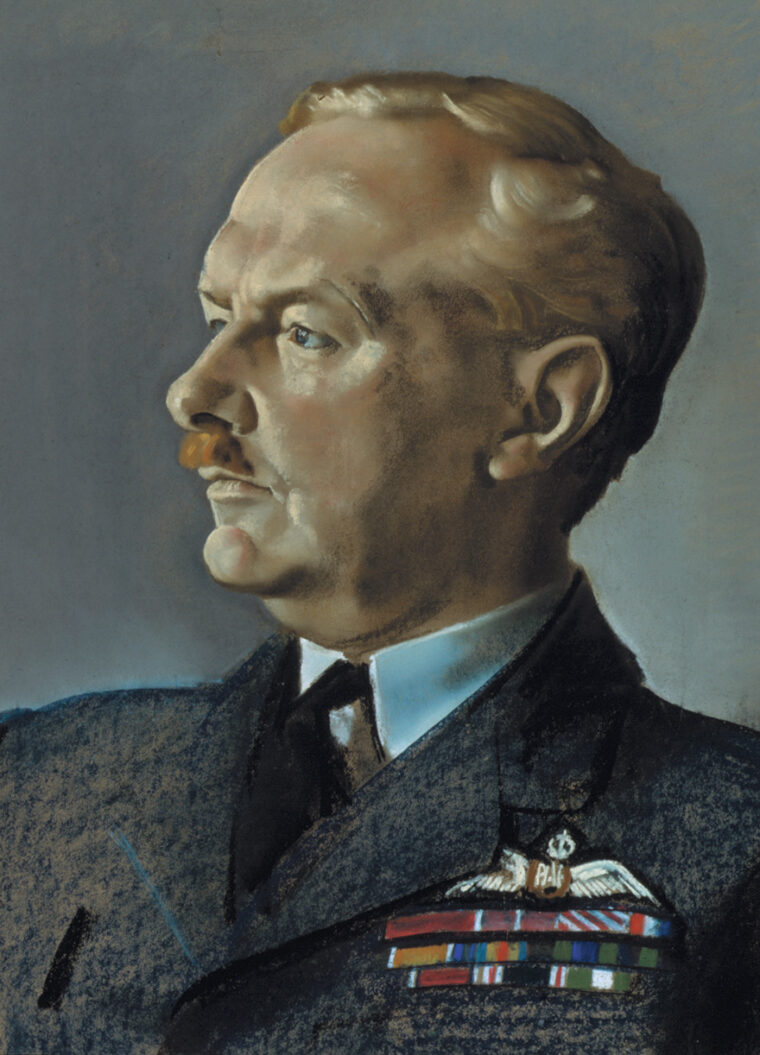
“Attacks on Cities Are Untolerable Unless Strategically Justified”
“Attacks on cities,” he declared, “like any other act of war, are intolerable unless they are strategically justified. But they are strategically justified in so far as they tend to shorten the war and so preserve the lives of Allied soldiers. To my mind, we have absolutely no right to give them up unless it is certain that they will not have this effect.”
He defended his policy vigorously in the face of conscientious protesters led by the Archbishop of Canterbury, the Moderator of the Church of Scotland, and other religious leaders. To the British public, Harris’s aerial offensive was portrayed as targeting military and industrial targets, with civilians killed only by accident. It was feared that too much high-level moral condemnation would disturb the morale of Bomber Command air crews, who suffered appalling losses (55,000 men) during much of the war. A total of 10,321 aircraft were lost in 389,809 sorties. Of these, 1,368 planes crashed in friendly territory, and many of their crews fought on.
Harris, echoing the air-power prophets Giulio Douhet, Billy Mitchell, and Hugh Trenchard, believed firmly (and naively) that a severe aerial offensive would bring Germany to its knees without the need for ground action. General Carl “Tooey” Spaatz, commander of the U.S. Army Air Forces in Europe, agreed with him.
“There are a lot of people who say that bombing can never win a war,” said Harris. “Well, my answer to that is that it has never been tried yet, and we shall see.”
Bomber Command’s Armadas Rumble Through Night Skies
Under his capable direction, Bomber Command became a fearsome weapon, with great armadas rumbling through the night skies into the heart of the Reich. The first 1,000-bomber raid of the war pulverized 600 acres of Cologne on May 30-31, 1942, and left 45,000 people homeless. It was a considerable military and propaganda success.
Of the 1,046 bombers scraped together from operational squadrons and training units, only 40 were lost. The cities of Lubeck, Rostock, Mainz, Karlsruhe, Dusseldorf, and Frankfurt received similar treatment.
The bomb capacity of the Lancasters and Stirlings was increased, a special “Pathfinder” force was created to go ahead of the main groups and illuminate targets, and the anti-radar device, code-named “Window,” was introduced. Thousands of bundles of aluminum foil strips were dropped to confuse German radar screens.
The improvements began to show results by 1943 in a series of paralyzing raids on the Ruhr Valley, Germany’s industrial heartland. There, Harris targeted an entire economic region, 250 miles square and with a population of more than three million, for systematic destruction.
Unprecedented ruin was wrought on towns and factories, including the three-mile-square Krupp Works at Essen, primary engine of the Nazi war machine. It started on the night of March 5, 1943, with a raid by 443 Lancaster, Halifax, and Wellington bombers that laid waste or badly damaged more than 600 acres. Two hundred Bomber Command raids hit Essen alone, and when British and American troops captured it in April 1945, a GI described it as “a place of the dead.”
Harris: The Damage Is Worth the Pain
The cost in bomber crews was high. By now the RAF had lost almost a thousand aircraft, but “Bomber” Harris believed that the damage he was inflicting was worth the pain. Between July 24 and August 2, 1943, the great city of Hamburg was bludgeoned in the most effective attacks of the European aerial campaign. Half of the city was leveled, and at least 45,000 people were killed and 400,000 left homeless. In 10 days more civilians were killed than in Britain during the entire war.
Many incendiary bombs were dropped during the raid of July 27-28, and history’s first firestorm was raised. The fires in Hamburg grew so intense that they devoured the oxygen and created hurricane-force winds that both fed the flames and spread them at great speed. “It was the second biggest city in Germany,” Harris explained, “and I wanted to make a tremendous show.”
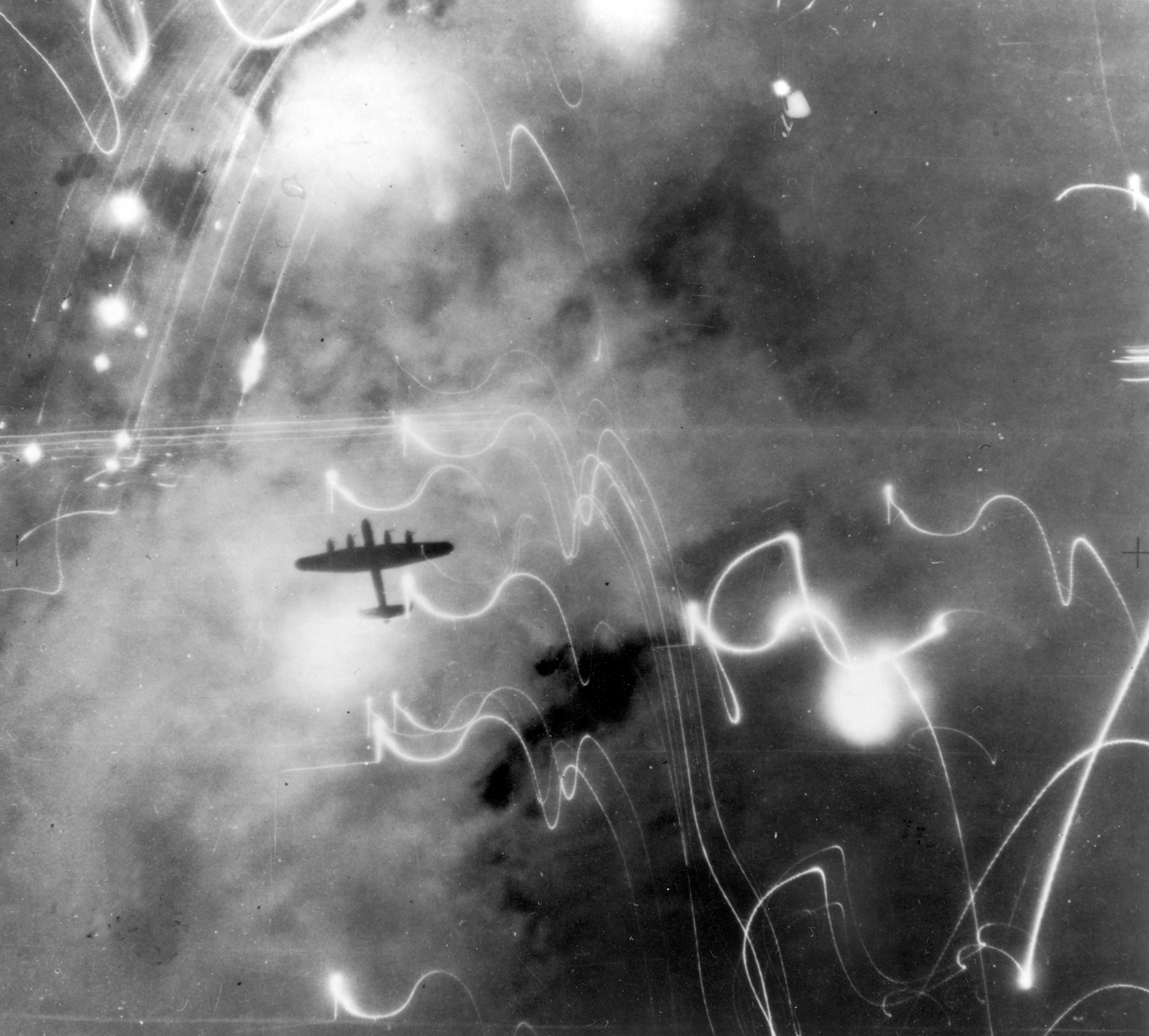
devastating firestorm in Hamburg that burned and suffocated thousands of people.
American B-29 Superfortress groups would later deal even worse punishment to Tokyo and other Japanese cities.
“The Whole of the Remaining Cities of Germany Is Not Worth the Bones of One British Grenadier”
Harris made no apologies for the devastation and suffering his air crews were inflicting on Germany. As the equally forceful, cigar-chewing General Curtis E. LeMay of the Eighth Air Force put it, “As to worrying about the morality of what we were doing—nuts. I was a soldier; soldiers fight. If we made it through the day without exterminating too many of our own people, we thought we’d had a pretty good day.” After Bomber Command’s destruction of Dresden, the site of marshaling yards, industry, and a communications center, on the night of February 13-14, 1945, Harris said the following April, “I do not personally regard the whole of the remaining cities of Germany as worth the bones of one British grenadier.”
Eighth Air Force bombers completed the destruction of the historic, beautiful city on February 14-15, at the time that German V-2 rockets were falling on the London area. Dresden was a key link to the Eastern Front, but the necessity of the raids so late in the war has been debated ever since.
The relentless round-the clock Anglo-American aerial offensive forced Germany to deploy for defense thousands of day and night fighters and almost 20,000 antiaircraft guns, most of them the highly effective 88mm type. Such resources were badly needed elsewhere, especially on the Eastern Front. In April 1942 the Luftwaffe used 43 percent of its fighter strength in Russia; a year later this proportion had fallen to 27 percent, thanks to the havoc wrought by Harris’s Lancasters and Halifaxes and American B-17 Flying Fortresses and B-24 Liberators.
As Hitler’s astute armaments minister Albert Speer observed, “The real importance of the air war consisted in the fact that it opened a second front long before the invasion of Europe. That front was the skies over Germany. The unpredictability of the attacks made the front gigantic; every square meter of the territory we controlled was a kind of front line. Defense against air attacks required the production of thousands of antiaircraft guns, the stockpiling of tremendous quantities of ammunition all over the country, and holding in readiness hundreds of thousands of soldiers.… As far as I can judge … no one has yet seen that this was the greatest lost battle on the German side. The losses from the retreats in Russia or from the surrender of Stalingrad were considerably less.”
The Rain of Bombs Erodes Once-Flourishing Industries
At the time when Harris took over Bomber Command, “the Allies faced the worst-case scenario,” said Professor Richard Overy of King’s College in London, and during the next two years of attrition they actually won the war. The rain of bombs on German and Italian cities eroded once-flourishing industries, especially in such key areas as aircraft and tank production.
The aerial offensive, said Overy, sped the re-entry of Allied forces into Europe, helped to open a second front in 1942-1943 by diverting much German manpower and equipment from the Eastern front to home defense, created the conditions for the defeat of the German Air Force, and prevented the effective development of a European superpower. Also, Harris’s campaign served a crucial political purpose to Prime Minister Churchill in his difficult relations with Soviet Marshal Josef Stalin, who repeatedly pressed for an invasion of the European continent long before the Western Allies were capable of mounting it.
As Group Captain Leonard Cheshire, a Victoria Cross winner and one of Harris’s most famous pilots, commented, “I am convinced that without the Bomber Offensive as he ran it, we would not have prised Fortress Europe open enough to let the armies in.”
During two Air Ministry tours of duty, Harris emphasized effective training and firm discipline, though the veteran of distinguished air service on the Western Front in 1916-1918 and in India, Iraq, and Iran in the interwar years was not cut out for top-level staff work. Like Churchill, he was the sort of commander who emerges in a crisis, one for which his knowledge, experience, and fiber have particularly prepared him. But for the war and the critical roles each was called upon to play, both would probably have ended their careers in relative obscurity.
An Essential Man for the Moment
In the event, both proved to be the men for the moment. In Harris’s case, his particular qualities were essential to direct it and bear the inescapable burdens.
Harris was born in Cheltenham, the son of an Indian civil servant, and was schooled in England before leaving to farm in Rhodesia at the age of 17. At the outbreak of World War I in August 1914, he joined the 1st Rhodesian Regiment as a bugler. He saw action in Southwest Africa and then returned to England in 1915 to join the fledgling Royal Flying Corps. Qualifying the next year as a fighter pilot, he served with distinction in No. 45 Squadron in France.
He also organized London’s first antizeppelin defenses, and then took command of No. 44 Squadron. He trained it for night fighting, and reached the rank of major by war’s end. When the Royal Air Force was created in 1919, he was made a squadron leader and posted to India. Serving next in Iraq and Iran, he displayed talent as an innovator, improvising bomb racks for heavy transport planes of his No. 45 Squadron to attack Turkish troops and tribal insurgents in Iran.
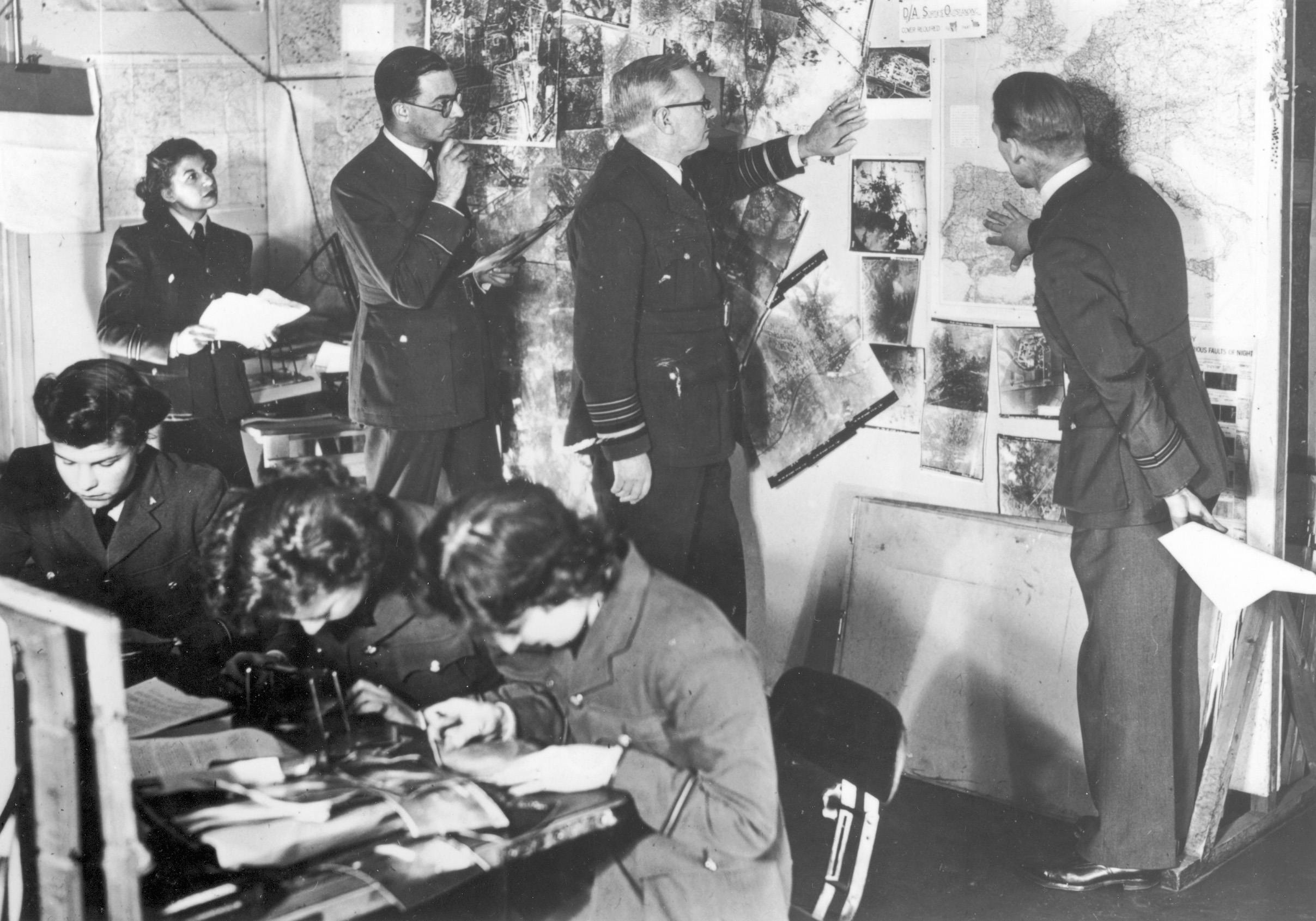
After leading No. 58 Squadron; passing through the Army Staff College at Camberley, Surrey; and serving on the Middle East Command air staff, Harris commanded a flying boat squadron and was promoted to group captain. He became deputy director of plans at the Air Ministry, and helped to draft a remarkable planning document in the fall of 1936 that forecast the start of war with Germany in 1939 and became the basis for British grand strategy in World War II.
Harris Quickly Moved Up in the Ranks
Promoted to air commodore in 1937, he took command of No. 4 Bomb Group, became the air officer in command of Palestine and Trans-Jordan, rose to air vice marshal, and came to America with a purchasing commission in 1939. He then commanded No. 5 Bomb Group, whose Hampden bombers did notable work in mine-laying and anti-invasion operations, and returned to the Air Ministry in 1940 as deputy chief of staff to Air Marshal Charles Portal, the cool, unflappable head of Bomber Command. Promoted to air marshal, Harris led an RAF mission to the United States and Canada to coordinate air strategy.
Sir Richard Peirse took over Bomber Command in October 1940, when Portal became chief of the air staff. But British air losses continued to be severe, so Peirse was sacked and replaced by Harris in February 1942.
“Bomber” Harris was a complex character. He could be obstinate, ruthless, and rude, and some saw him as unrefined, insensitive, impatient, and almost totally inflexible. It was said that he had “a gentle face and a furious tongue.”
He did not suffer fools gladly, and a standard greeting for senior civil servants was: “What are you doing to retard the war effort today?” Americans got things done during the war, he said, “simply because America has no civil service.” His distrust of the British Army and the Royal Navy were well known; he was heard to say that the Navy had “no idea beyond the long-defunct battleship,” while the Army would never understand the value and potential of tanks until they could be modified to eat hay and defecate. And Harris was blunt. “When I speak to people, I know my ideas,” he said. “What I want to hear is theirs.”
A Generous Man, a Devoted Father, a Born Storyteller
Yet he could also be generous, witty, and considerate. He was a devoted family man who loved his children and grandchildren. His daughter, Jacqueline, recalled a happy childhood during the war “with a wonderful father with a great sense of humor and sense of fun who taught me to ride my pony, Sooty, and to stand on my head.” He was a good cook and a born storyteller.
Harris tirelessly championed his air and ground crews, and they responded loyally to his directness and iron sense of purpose. They nicknamed him “Butch” and perceived him as a distant, elemental force that was a crucial ingredient in the “two in the morning courage” that Napoleon judged the rarest of all, but which was routinely required of Bomber Command air crews.
Said one Lancaster crewman, “It pleased us to think of him as utterly callous, indifferent to suffering, and unconcerned about our fate. There was a paradoxical comfort in serving such a dread commander: no grievance, no complaint, no criticism could possibly affect him. You might as well complain to Jupiter that the rain was wet.” Another subordinate agreed, “Oh, we love him. He’s so bloody inhuman.”
Although Harris differed with his U.S. Army Air Forces counterparts on their chosen strategy of daylight precision attacks on specific economic targets (“panacea targets” he called them), he worked better with them than some of his British colleagues, including Air Marshal Portal, whom he regarded as a lucid man of modest manner and outstanding intellectual powers, but with whom his relationship deteriorated. When the Eighth Air Force vanguard headed by his friend, the able, diplomatic Maj. Gen. Ira C. Eaker, arrived in England early in 1942, Harris promptly ensured the requisition of the Wycombe Abbey School for Girls as the American headquarters, code-named “Pinetree.”
“Yankee Doodle Certainly Went to Town, and Can Stick Yet Another Well-Deserved Feather in His Cap”
When a dozen B-17 Flying Fortress heavy bombers, escorted by RAF Spitfires, hit railroad yards near Rouen, France, in the first American air assault of the European war on August 17, 1942, Harris exulted, “Yankee Doodle certainly went to town, and can stick yet another well-deserved feather in his cap.” He and Eaker worked out a program of round-the-clock strategic bombing, with Bomber Command hitting Nazi-occupied Europe by night and the American B-17 and B-24 bomber groups conducting daylight raids. As General Eaker assured Churchill at the Casablanca Conference in January 1943, “If the RAF continues night bombing, and we bomb by day, we shall bomb them around the clock and the devil shall get no rest.”
Harris was a vital element in forging the British-U.S. aerial offensive. There were inevitable differences, but Harris’s relationship with the Americans, particularly Generals Eaker, Spaatz, James F. Doolittle, James Chaney, and Frank M. Andrews, was one of mutual respect, trust, and friendship.
“We and they were one force,” said Harris. “The Americans gave us the best they had, and they gave us everything we needed as and when the need arose. I hope, indeed, I know, that we did everything possible for them in turn. We could have had no better brothers in arms….”
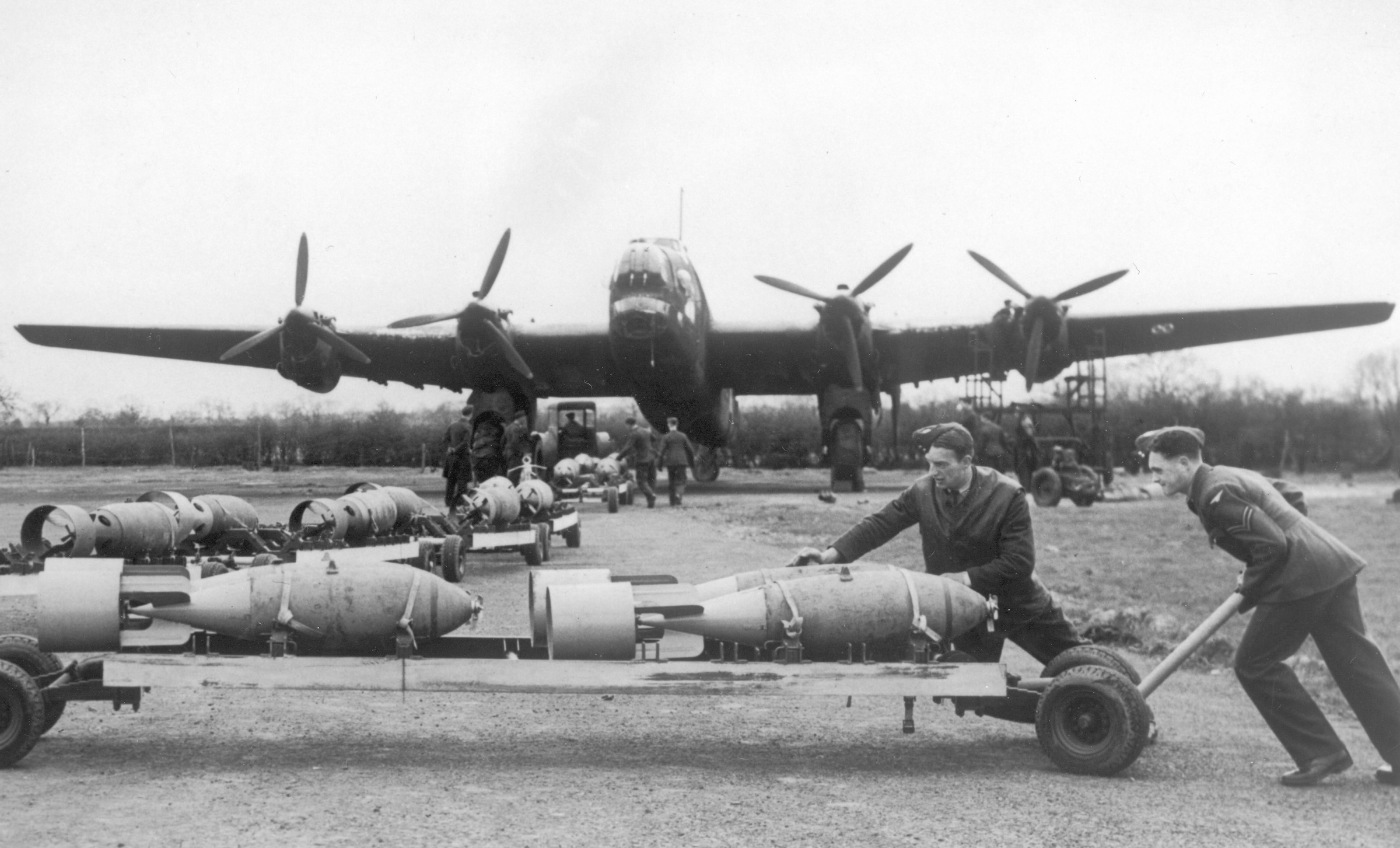
Harris never ceased in his tireless struggle to intensify the air offensive, and was convinced that it would bring Germany to its knees and shorten the war. “I feel certain that Germany must collapse before this program [the first phase of his “Battle of Berlin”], which is more than half completed already, has proceeded much further,” he told Churchill in the fall of 1944. “We have not got far to go. We must get the USAAF to wade in with greater force. If they will only get going according to plan and avoid such disastrous diversions as Ploesti, and getting ‘nearer’ to Germany from the plains of Lombardy (which are further from nine-tenths of Germany than is Norfolk), we can get through with it very quickly. We can wreck Berlin from end to end if the USAAF will come in on it. It will cost us between 400-500 aircraft. It will cost Germany the war.”
Bomber Command Played Crucial Role in Normandy Success
Bomber Command’s three months of precision bombing in the spring of 1944, primarily of French railroads, played a crucial role in the success of the Normandy invasion on June 6, and in the spring of 1945 its campaign with the USAAF left all the German armed forces without fuel oil. In the war at sea, Bomber Command’s mine-laying operations sank or damaged more than a thousand enemy ships.
Harris had a complex relationship with Churchill, whom he found to be a mixture of “real human kindness and sometimes impish mischief,” a bad listener, difficult to argue with, and “who was always at his best when things were worst.” The prime minister had advocated the bombing of Germany and worked closely with the air marshal for three years, but he was perpetually troubled over the bombing of civilians. For one who had marshaled his lead soldiers in a lonely room at Blenheim Palace, dreamed of glory, charged at Omdurman, and displayed great dash in South Africa, this was an odious way to conduct a war.
After watching a film of the destruction of Hamburg, the prime minister had leaped to his feet and exclaimed, “Are we beasts? Are we taking this thing too far?” On March 28, 1945, after the Anglo-American raids on Dresden that he had requested, Churchill sent a draft memorandum to the Allied Chiefs of Staff: “It seems to me that the moment has come when the question of bombing of German cities simply for the sake of increasing the terror, though under other pretexts, should be reviewed.”
Churchill, the doughty, mercurial humanitarian, was feeling pangs of conscience about the death and destruction and was turning his thoughts to preparing for Germany’s postwar needs. He was distancing himself from Harris and his valiant air crews, of whom he would nevertheless say on May 15, 1945, “I believe that the massive achievement of Bomber Command will long be remembered as an example of duty nobly done.”
Hardest Blow for Harris Comes from Churchill
Meanwhile, for Harris, having completed a thankless task and emerging from the war as Britain’s enfant terrible and, in the eyes of some, a heartless scoundrel, the hardest blow fell on the afternoon of May 13, 1945, with the prime minister’s speech marking victory in Europe. With growing incredulity, Harris and Eaker listened as Churchill summarized the Allied triumphs all over the world without mentioning the strategic bombing campaign apart from an oblique reference to damage inflicted on Berlin.
Harris retained his admiration and affection for the prime minister but never forgot this slight of his men. Meanwhile, Churchill’s Labor Party successor in the 1945 general elections, Clement Attlee, failed to include Harris among the military peers in the victory honors list.
When the air marshal published his memoir, Bomber Offensive, in 1947, enthusiasm in Britain for the long and costly wartime service of Bomber Command was already waning. Humanitarians continued to deplore the casualties, not so much to the RAF crews as to German women and children. Naval historians claimed that excessive use of precious resources to the bombing offensive had almost cost the Allies the critical Battle of the Atlantic. Commentators on all sides made unfavorable contrasts between the bludgeon blows—area bombing—of the RAF against German cities and the U.S. Army Air Forces’ daylight precision raids on specific targets. The precision was not always what it was trumped up to be, however, and was abandoned in the B-29 raids on Japan.
In 1946, hurt by the Attlee government’s withdrawal of Churchill’s proposal that he should be made governor of Bermuda, and vexed by his own failure to secure a distinctive campaign medal for his Bomber Command veterans, Harris departed for South Africa. There, with American backing, he started and ran a successful shipping line for several years.
Harris Peacefully Settles Down in England as a Baronet
Soon after Churchill’s return to power in 1951, Harris was offered and refused a peerage. He accepted a more modest baronetcy, settled down in England to a peaceful but active retirement with his wife, Lady Therese (Jill) Harris, and his bull terrier, Rastus, at his home in scenic Oxfordshire, and was showered with belated honors. He died quietly on April 5, 1984, eight days short of his 92nd birthday.
A Lancaster flying low over his interment in Burntwood Cemetery thundered the RAF’s closing tribute to the last of its great World War II captains. Today, his stern effigy stands outside St. Clement Danes, the RAF church on the Strand in London.
The man is gone, but the controversy that swirled around him lingers yet.
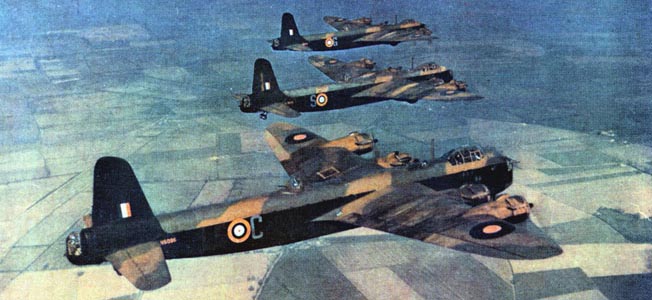
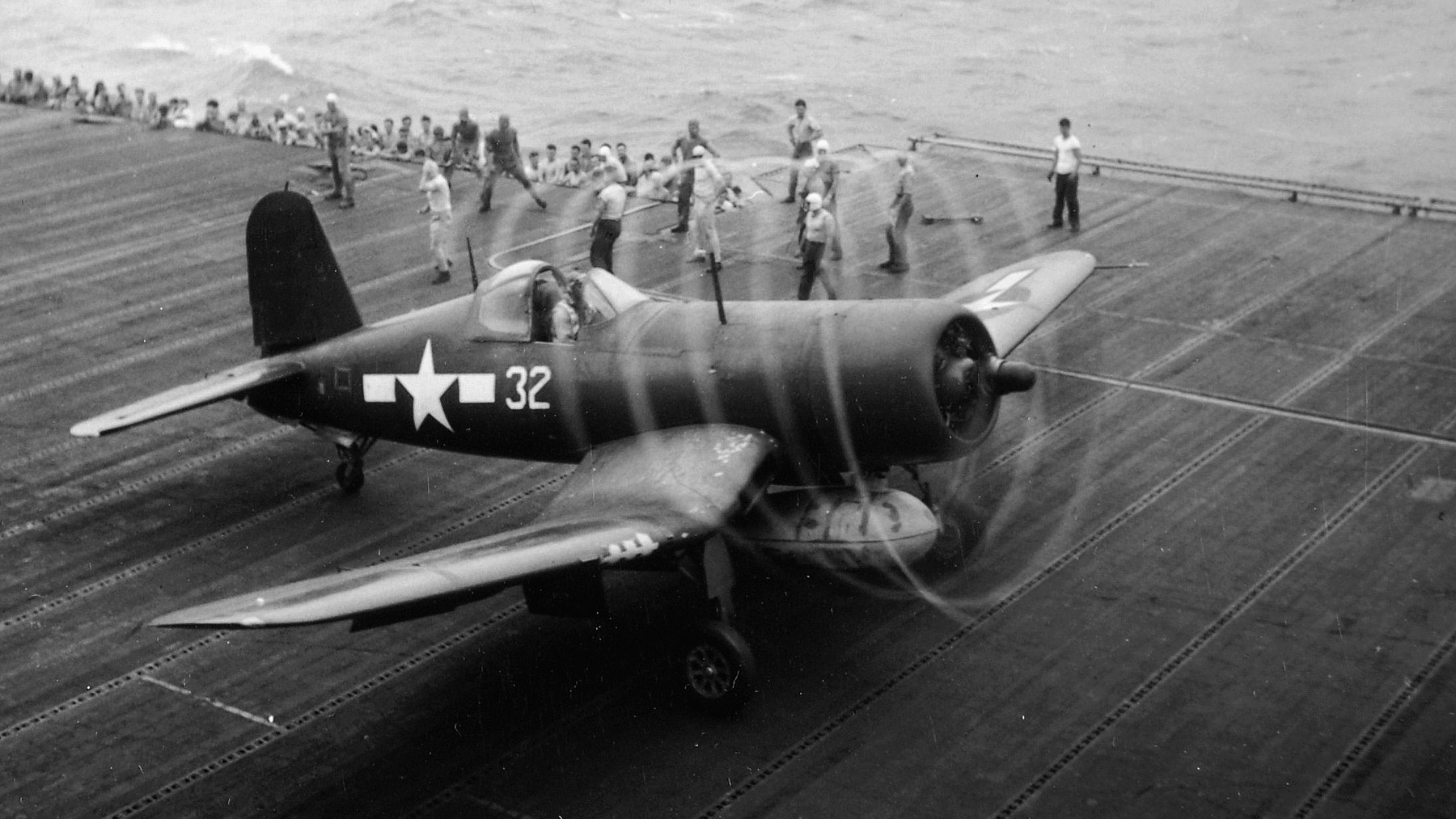
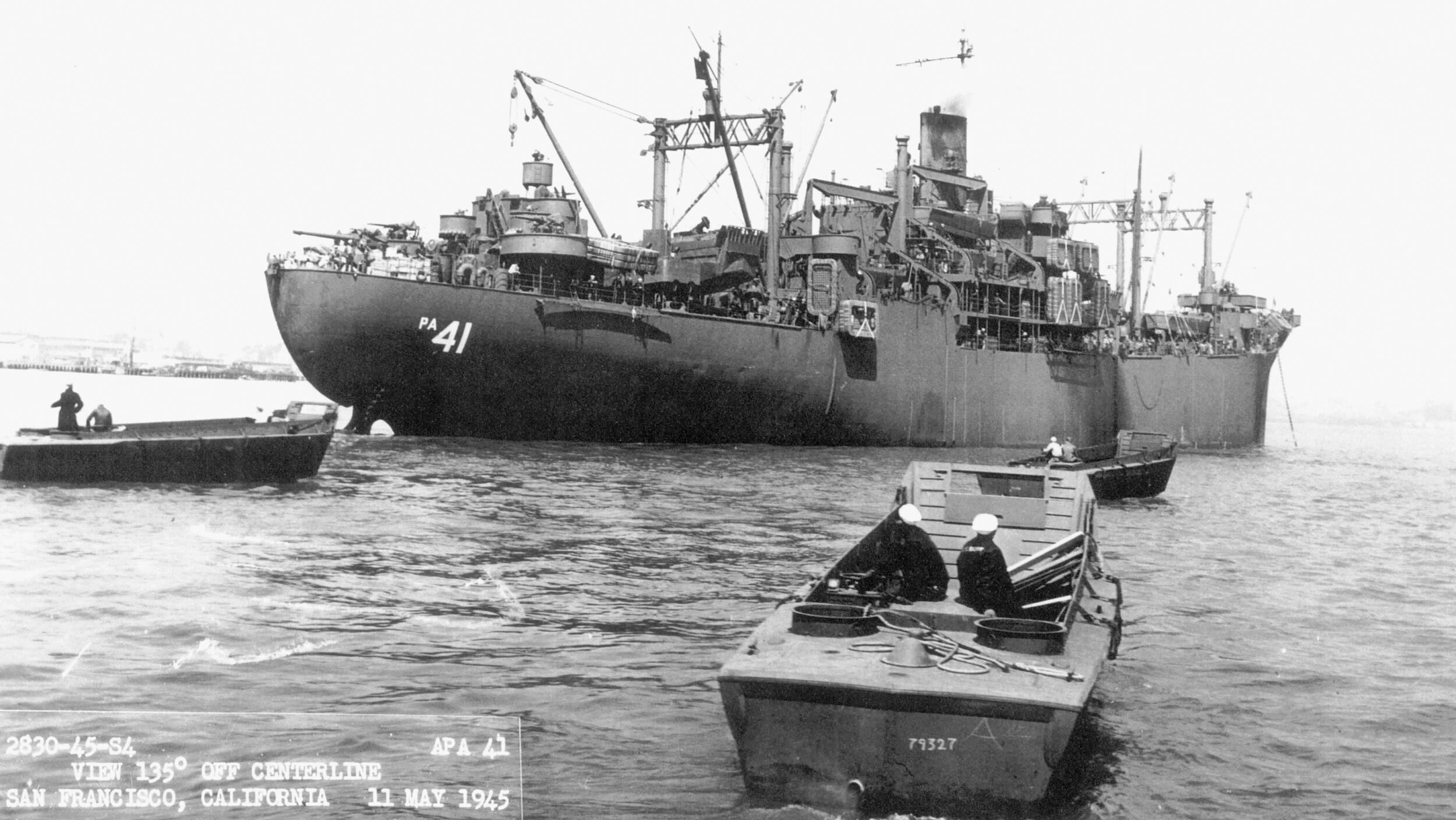
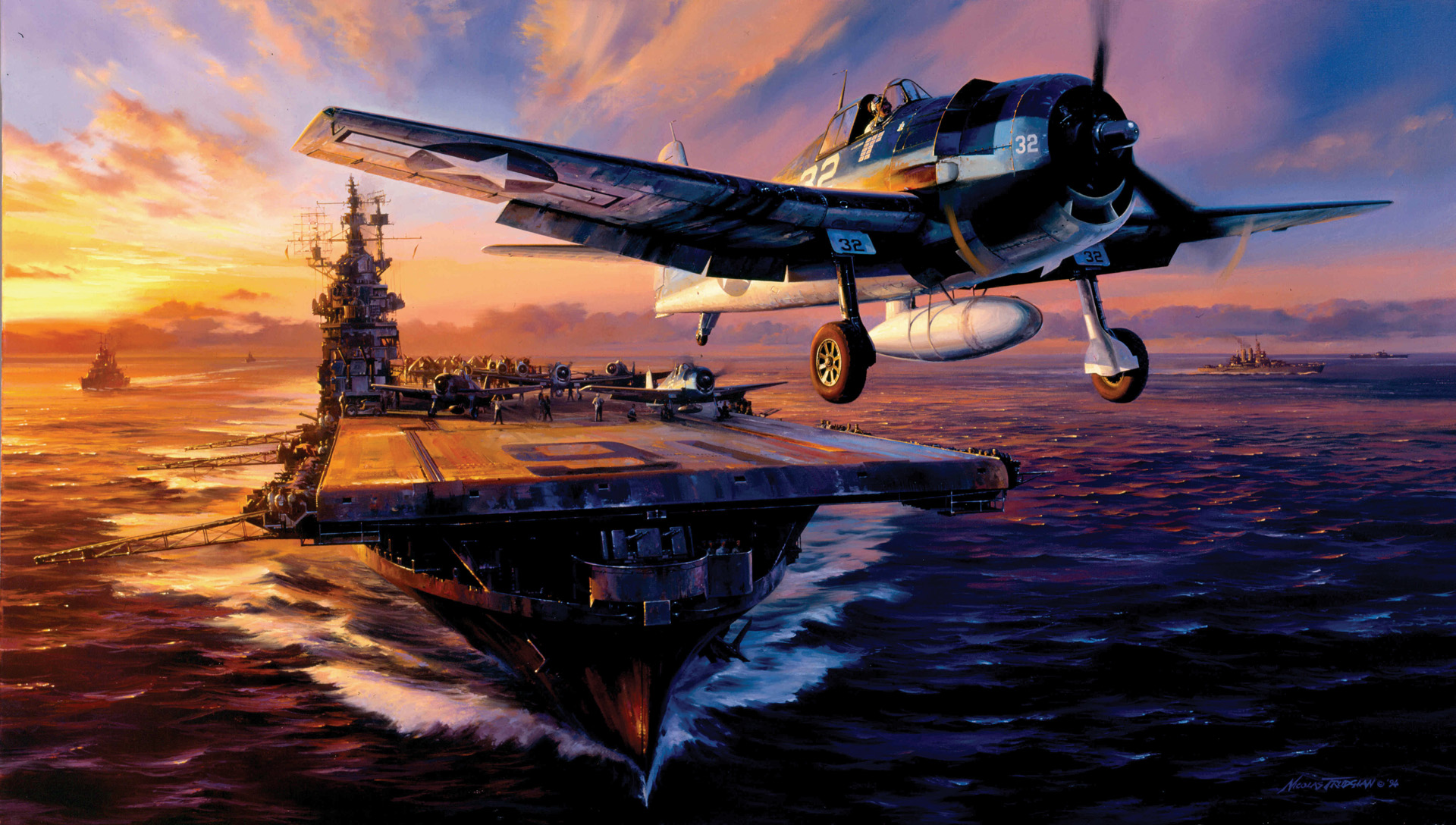
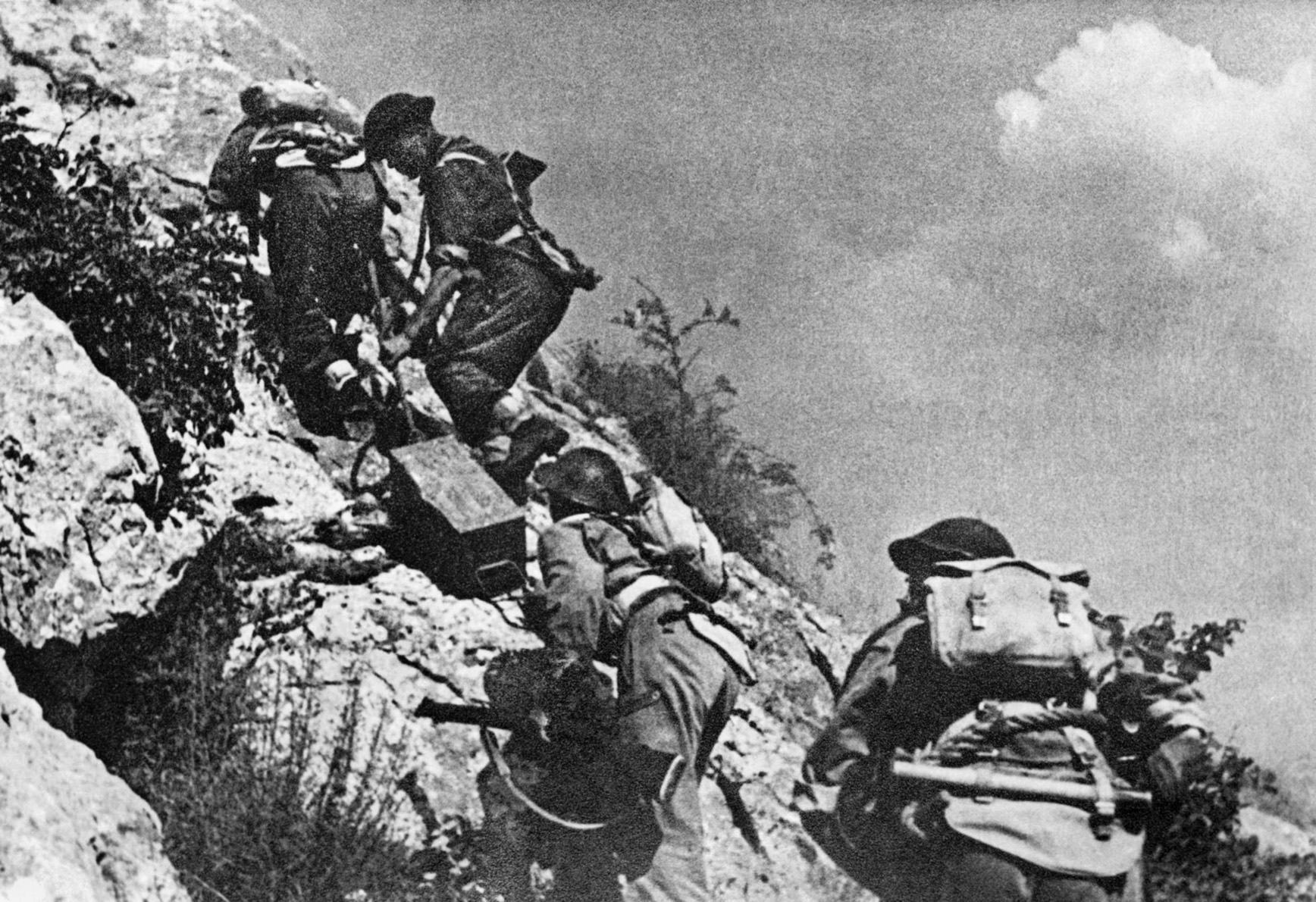
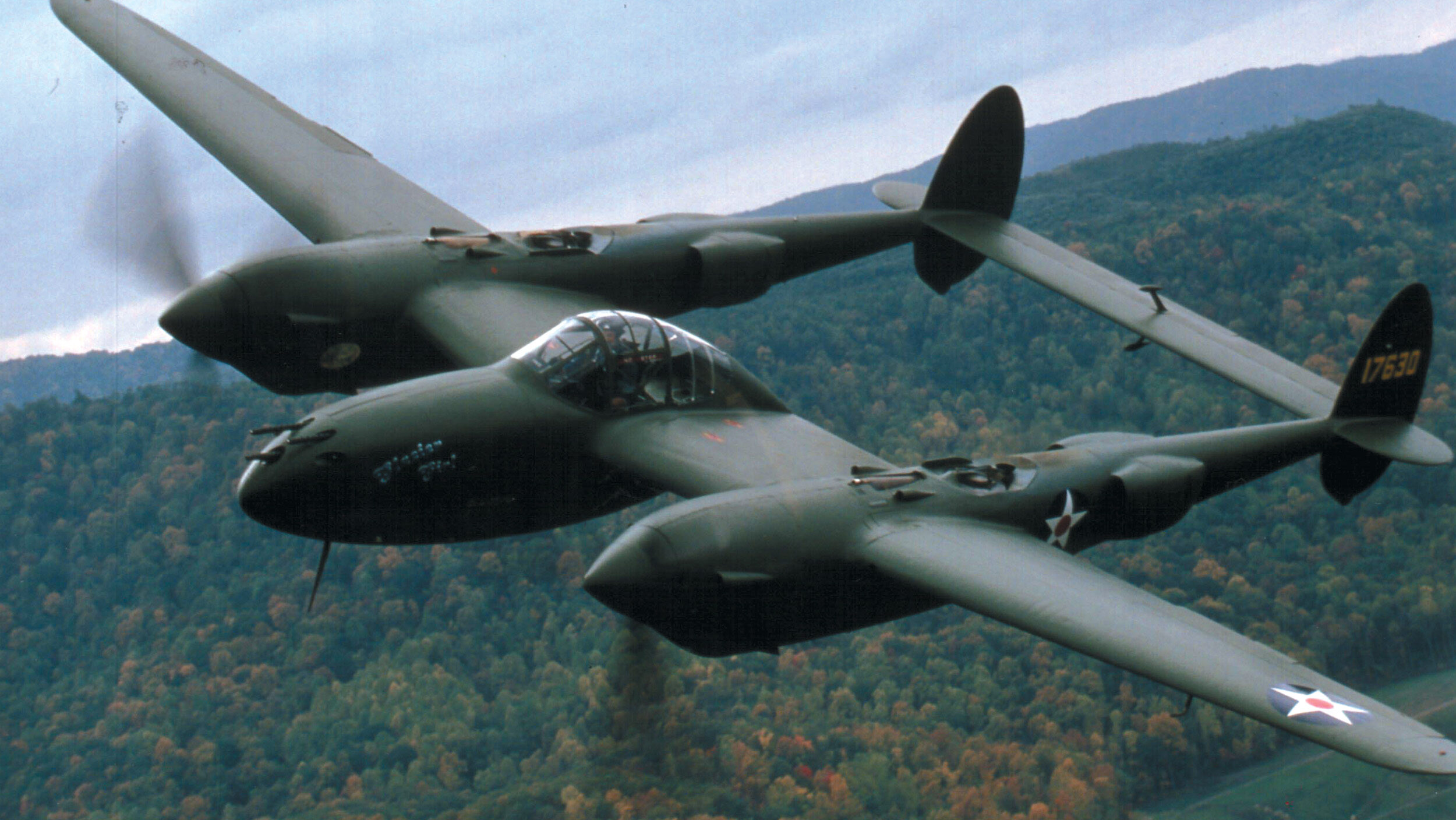
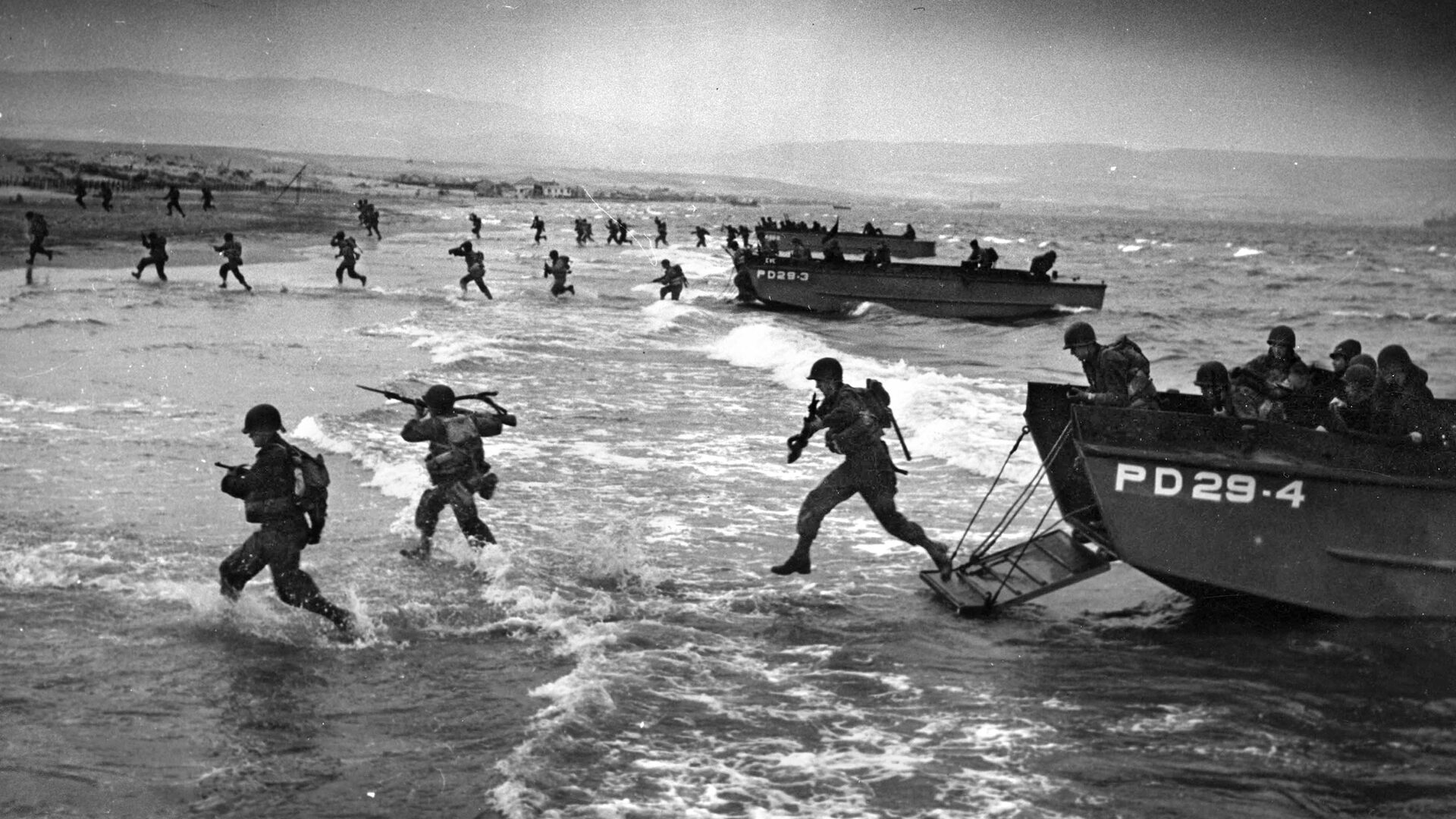
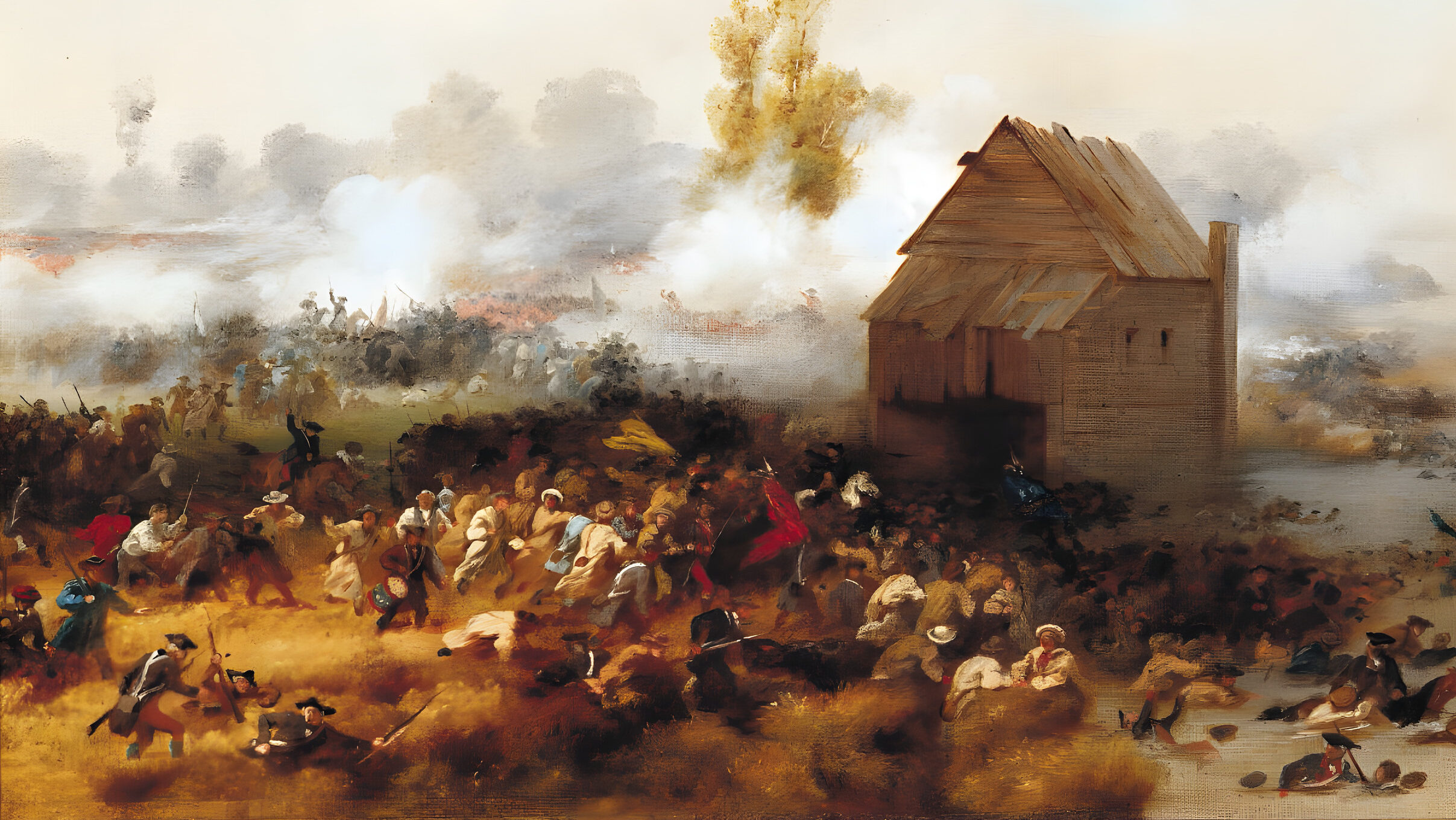
Join The Conversation
Comments